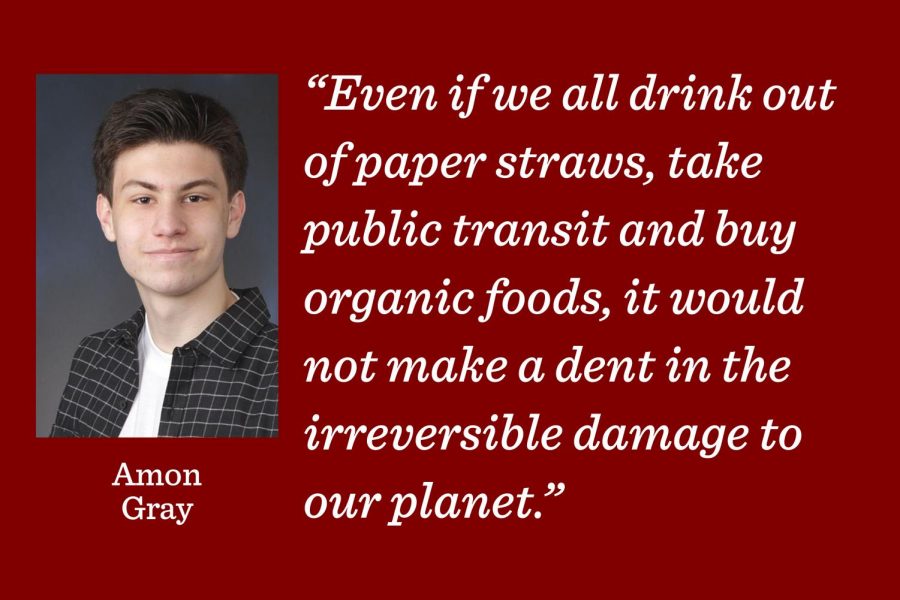Individual environmentalism is futile without policy
Midway Staff
Voters must force politicians to make legislation addressing climate change if any change is to happen, writes Arts Editor Amon Gray.
December 14, 2021
As I looked across the Wind River mountain range in Wyoming, what greeted my eyes wasn’t the beautiful mountain view I expected. Instead, a smoky haze veiled the mountains, and the smell of distant wildfires was strong in the air. In the summers of 2019 and 2021 I took courses with the National Outdoor Leadership Schools, where a large part of the curriculum is related to sustainability and climate change. This issue seemed all the more immediate as we watched wildlife move further up in elevation as the areas they previously populated became uninhabitable. We discussed ways we could reduce our carbon footprint in our daily lives. However, it was difficult to take these lessons to heart as we saw government inaction and corporate avarice continue to bring the vast majority of damage to our planet.
While personal action on climate change is important, these governments and corporations must also be held accountable, and legislation should be passed to ensure that they do.
Burning fossil fuels releases greenhouse gases into the atmosphere, trapping the sun’s heat, and raising the temperature of the planet. The Earth’s average temperature has risen more dramatically in the past 150 years than in the 24,000 years preceding. This has led to rising sea levels, more and larger natural disasters and an increase in the spread of disease due to a rise in mosquito populations.
Even if we all drink out of paper straws, take public transit and buy organic foods, it would not make a dent in the irreversible damage to our planet. China is currently burning more coal than ever to keep up with electricity shortages. Their coal burning produces 14.3% of global industrial greenhouse gas emissions despite promises to become carbon neutral by 2060.
Many other industrial companies have made promises about carbon neutrality and renewable energy sources. However, many have struggled to cut carbon emissions, and steps toward policy change have been frustratingly slow.
In our government, President Joe Biden has not yet made a deal with Congress to meaningfully address climate change on a federal level. A proposed carbon tax would incentivise clean energy and climate responsible buying practices. However, due to heavy opposition to raising taxes, this likely would not pass. On an international level, tighter restrictions could be placed on deforestation, and ocean cleaning efforts could be increased.
We are running out of time to address the climate issue in a meaningful way. Personal responsibility will only go so far, so specific and decisive action must be made on a global scale to sustain our planet. Future generations have a right to their own meaningful experiences in nature and the wilderness, and it is our responsibility to sustain a world that can accommodate them.
As voters and future voters we must make climate action a requirement for our leaders. We can put pressure on our leaders by organizing behind the message and making sure candidates know their climate policy will have a large influence over our votes.




























































